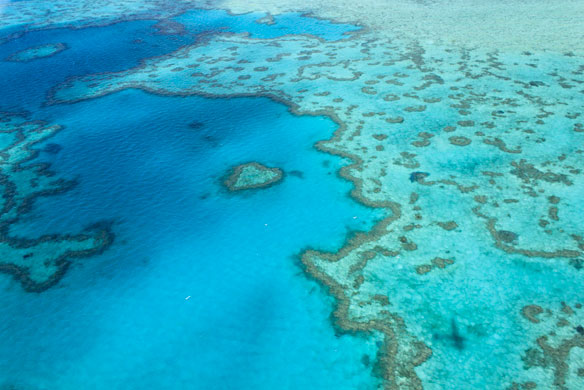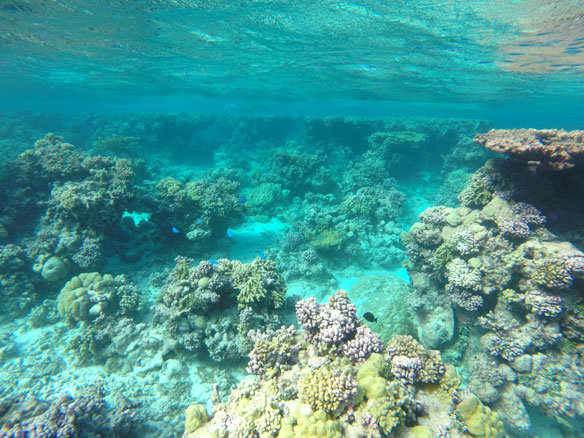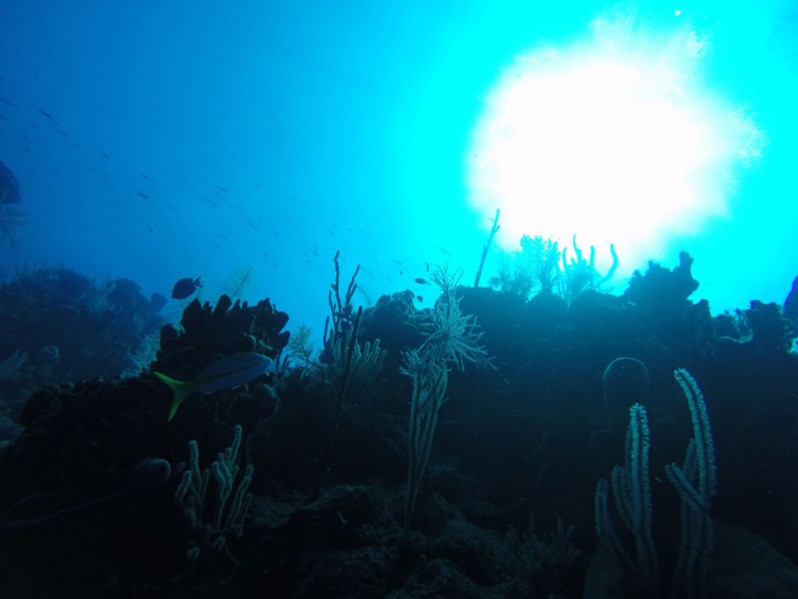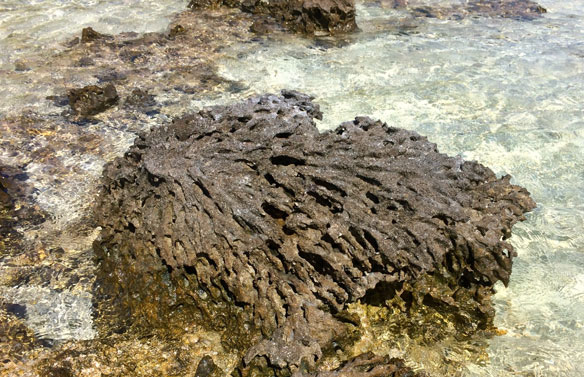There’s still time to save the Great Barrier Reef from dying

Two major bleaching events have wracked the Great Barrier Reef over the last two years, leaving chunks of it dead.
Historical nautical maps show loss of coral reefs

Scientists have used detailed nautical maps created by British sailors in the 1700s to study more than two centuries of coral loss in the Florida Keys. They found that over the past 240 years, the region has lost more than half of its coral structures, with some areas, particularly closer to shore, either gone completely or having lost up to 90 percent of their extent.
Paris agreement’s 1.5C target ‘only way’ to save coral reefs, Unesco says

First global assessment of climate change impact on world heritage-listed reefs says local efforts are ‘no longer sufficient’…
Slathering on sunscreen at the beach? It may be destroying coral reefs

Studies show that oxybenzone, a common chemical found particularly in spray-on sunscreens, contributes to coral bleaching and leaves reefs deformed.
Sea Floor Erosion in Coral Reef Ecosystems Leaves Coastal Communities at Risk

In the first ecosystem-wide study of changing sea depths at five large coral reef tracts in Florida, the Caribbean and Hawai’i, U.S.G.S researchers found the sea floor is eroding in all five places, and the reefs cannot keep pace with sea level rise. As a result, coastal communities protected by the reefs are facing increased risks from storms, waves and erosion.
A Close-Up Look at the Catastrophic Bleaching of the Great Barrier Reef

Scientists are reporting the second mass bleaching in the Great Barrier Reef in the last year. In a Yale Environment 360 interview, researcher Terry Hughes says these events have damaged two-thirds of the world’s largest coral reef and are directly caused by global warming.
Corals Die as Global Warming Collides with Local Weather in the South China Sea

In the South China Sea, a 2°C rise in the sea surface temperature in June 2015 was amplified to produce a 6°C rise on Dongsha Atoll, a shallow coral reef ecosystem, killing approximately 40 percent of the resident coral community according to a study published in Scientific Reports this week.
Dead zones may threaten coral reefs worldwide

Dead zones affect dozens of coral reefs around the world and threaten hundreds more according to a new study. Watching a massive coral reef die-off on the Caribbean coast of Panama, they suspected it was caused by a dead zone – a low-oxygen area that snuffs out marine life – rather than by ocean warming or acidification.
Greenpeace images show Great Barrier Reef suffering coral bleaching for second year in a row

Greenpeace Australia Pacific today releases shocking photos and footage documenting the Great Barrier Reef’s first severe coral bleaching to happen two years in a row. The bleaching is the result of 12 months of above-average sea temperatures, which is “cooking the reef alive”.
